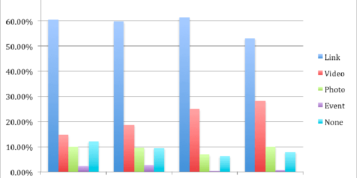Social video app TikTok has passed the 1 billion mark when it comes to installation across the App Store and Google Play. Its rise has been incredibly swift, with 663 million installs occurring in 2018 alone, compared to Facebook’s 711 million installs – which is slightly higher, but not by the margin you’d expect for the world’s biggest social media platform – and Instagram’s 444 million new downloads. Sensor Tower reports that it was also the top non-game app in January in the U.S.
Brands are keeping a close eye on the mobile app, which has been described as a social networking site for creating amateur music videos. Its 26 million monthly active users spend 46 minutes on average in the app each day, nearly matching the time users spend on Snapchat and Instagram.
Because its demographic skews young, brands are eager for the chance to reach younger markets through the app. It has already started to test ads in the U.S., with Grub Hub being one of the first big names to try its launch screen ad units.
New safety measures put in place
TikTok is already taking steps to try to avoid what’s happening at YouTube, where major advertisers like Nestle, McDonald’s and Disney have been backing out due to concerns about child exploitation and privacy. TikTok has just launched a new video series that shows users how to stay safe whilst using the app and how to use its privacy settings. The videos have a fun tone and are meant to be more engaging than the typical FAQ page. This is notably different from the way Facebook intentionally made its privacy settings so hard to find and enact that many frustrated users gave up trying.
They also recently added a custom comment filter that allows people to decide what kind of comments to allow on their videos and set a list of words or phrases that can’t be posted. Users are also being given the option to only allow people they approve to leave comments.
The app also announced yesterday that it would be launching a separate portion devoted to children under 13 with additional privacy and safety protections put in place for younger users in the wake of an FTC complaint about obtaining parental consent and its treatment of children’s data.





